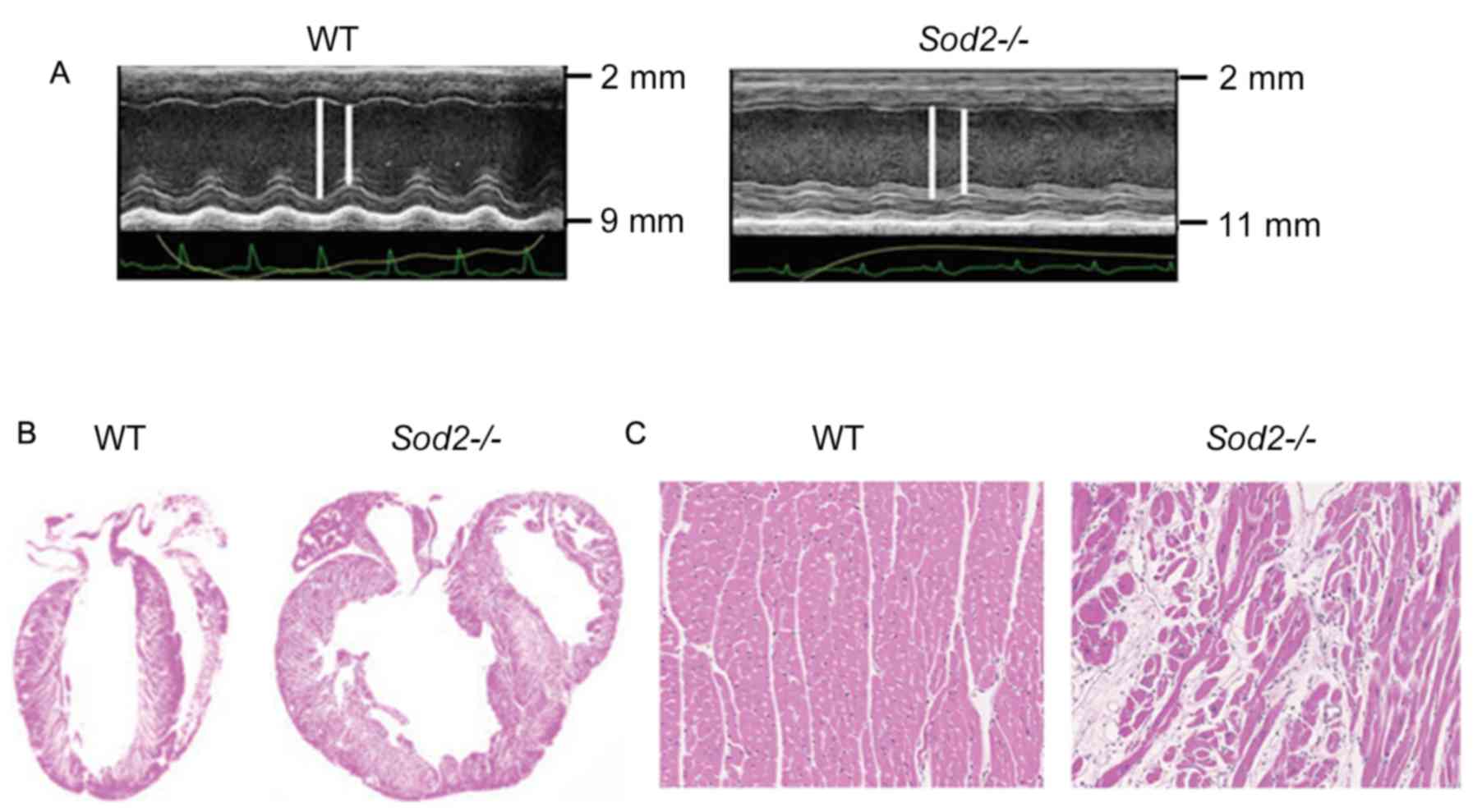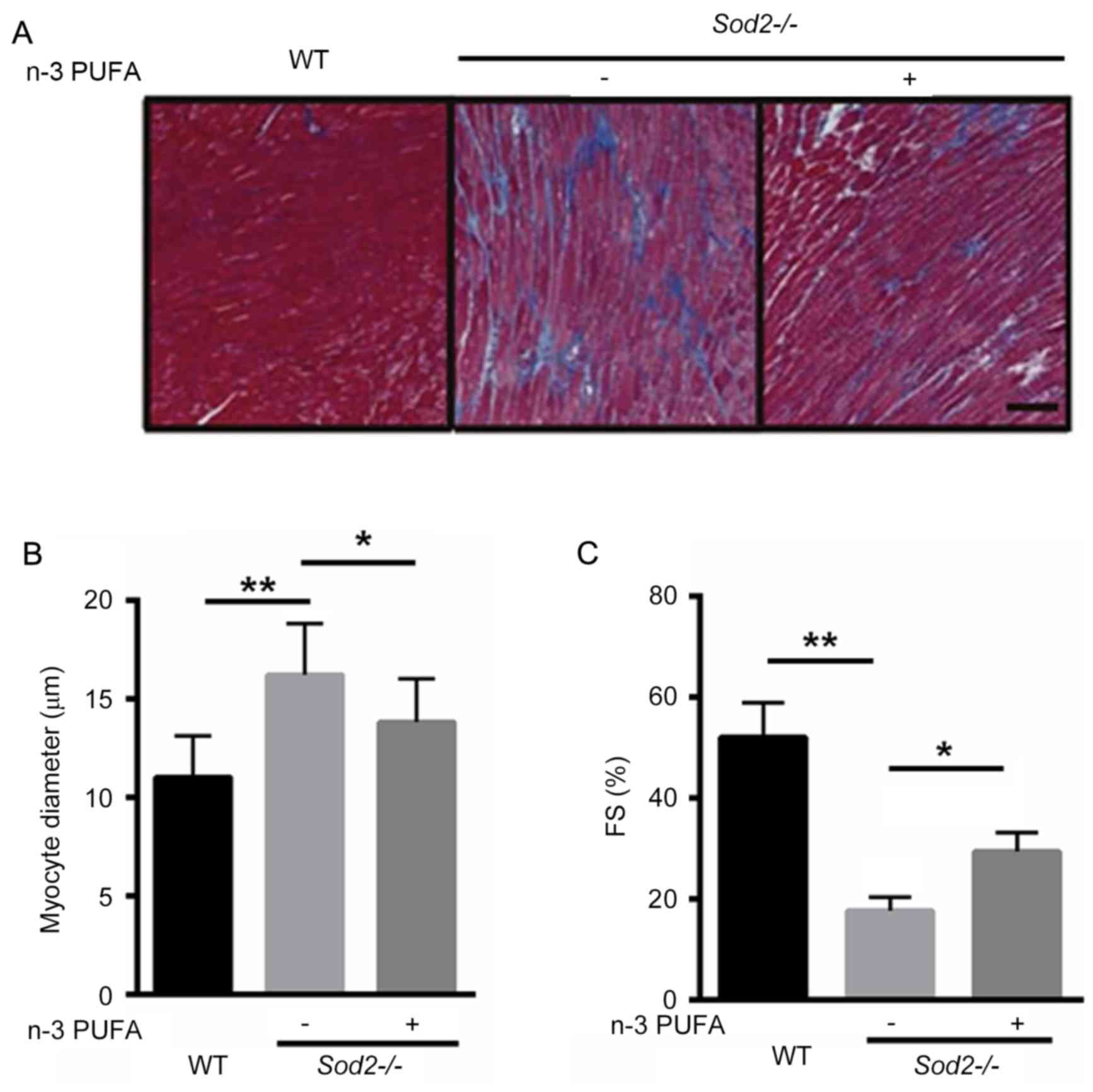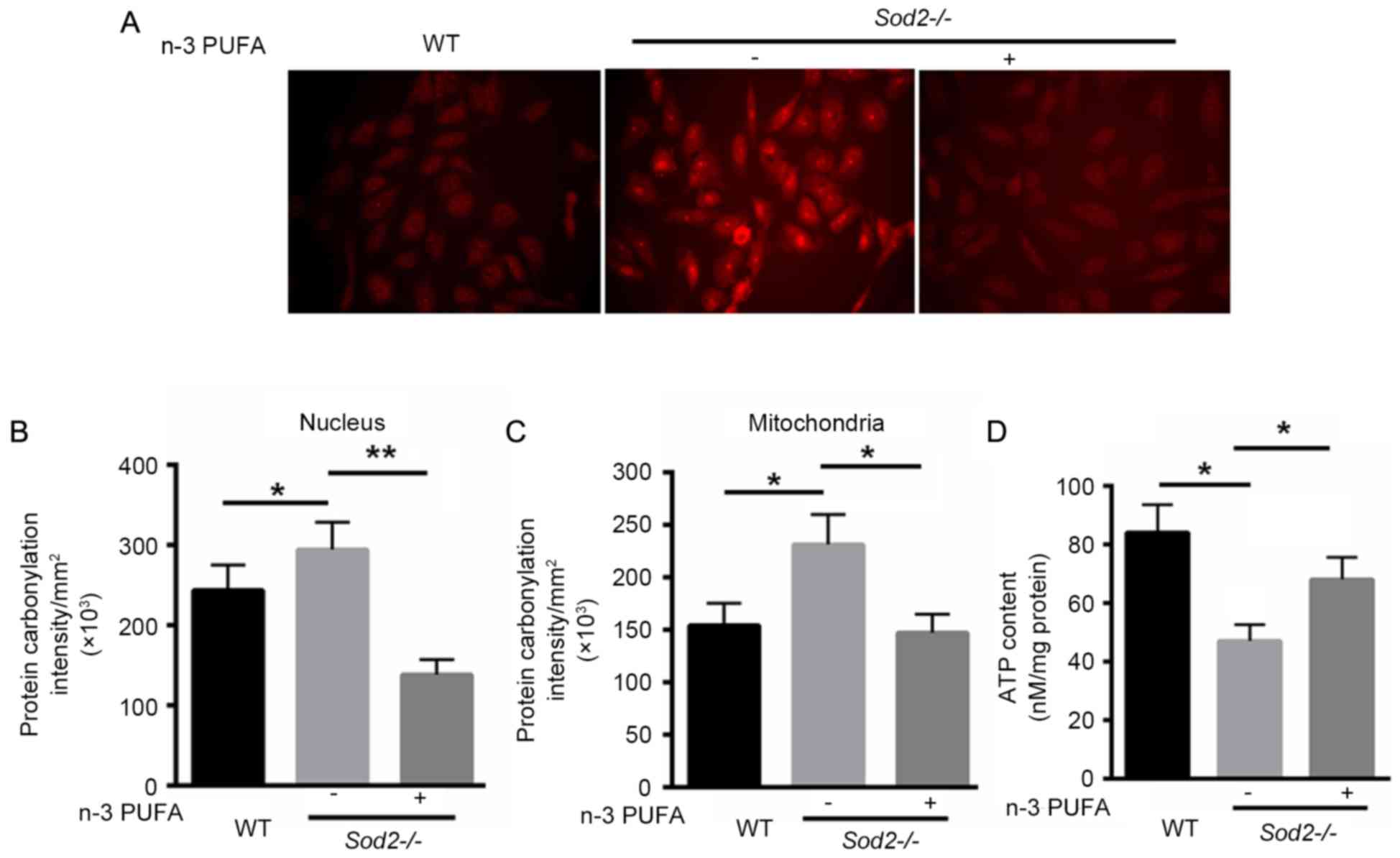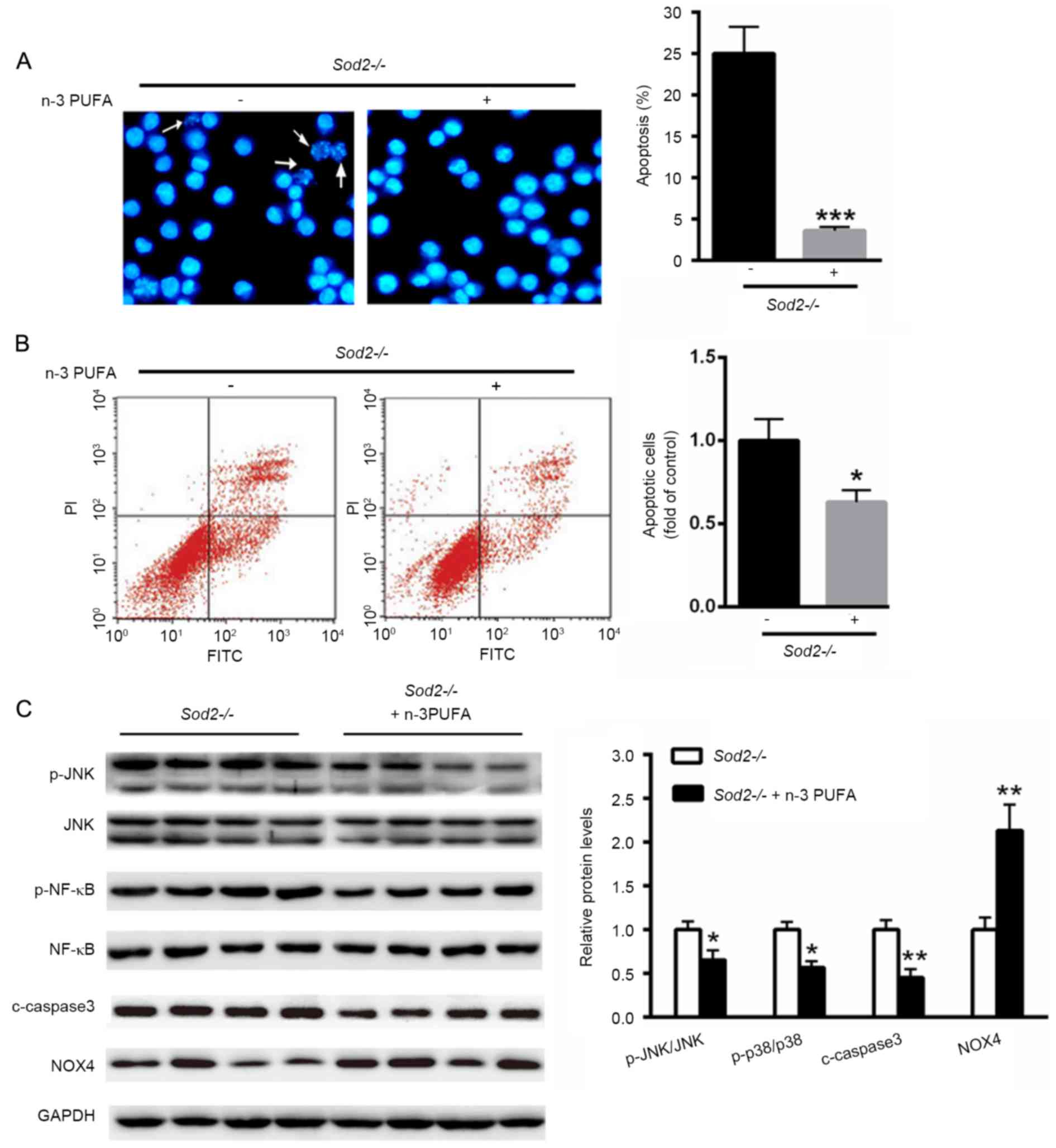|
1
|
Arumugam S, Thandavarayan RA, Veeraveedu
PT, Nakamura T, Arozal W, Sari FR, Giridharan VV, Soetikno V,
Palaniyandi SS, Harima M, et al: Beneficial effects of edaravone, a
novel antioxidant, in rats with dilated cardiomyopathy. J Cell Mol
Med. 16:2176–2185. 2012. View Article : Google Scholar : PubMed/NCBI
|
|
2
|
Elliott PM: Classification of
cardiomyopathies: Evolution or revolution? J Am Coll Cardiol.
62:2073–2074. 2013. View Article : Google Scholar : PubMed/NCBI
|
|
3
|
Cecchi F, Tomberli B and Olivotto I:
Clinical and molecular classification of cardiomyopathies. Glob
Cardiol Sci Pract. 2012:42012. View Article : Google Scholar : PubMed/NCBI
|
|
4
|
Elliott P, Andersson B, Arbustini E,
Bilinska Z, Cecchi F, Charron P, Dubourg O, Kühl U, Maisch B,
McKenna WJ, et al: Classification of the cardiomyopathies: A
position statement from the European society of cardiology working
group on myocardial and pericardial diseases. Eur Heart J.
29:270–276. 2008. View Article : Google Scholar : PubMed/NCBI
|
|
5
|
Lynch TL IV, Sivaguru M, Velayutham M,
Cardounel AJ, Michels M, Barefield D, Govindan S, dos Remedios C,
van der Velden J and Sadayappan S: Oxidative stress in dilated
cardiomyopathy caused by MYBPC3 mutation. Oxid Med Cell Longev.
2015:4247512015. View Article : Google Scholar : PubMed/NCBI
|
|
6
|
Samarghandian S, Farkhondeh T and Samini
F: Honey and health: A review of recent clinical research.
Pharmacognosy Res. 9:121–127. 2017.PubMed/NCBI
|
|
7
|
Zhang P, Yi LH, Meng GY, Zhang HY, Sun HH
and Cui LQ: Apelin-13 attenuates cisplatin-induced cardiotoxicity
through inhibition of ROS-mediated DNA damage and regulation of
MAPKs and AKT pathways. Free Radic Res. 51:449–459. 2017.
View Article : Google Scholar : PubMed/NCBI
|
|
8
|
Kono Y, Nakamura K, Kimura H, Nishii N,
Watanabe A, Banba K, Miura A, Nagase S, Sakuragi S, Kusano KF, et
al: Elevated levels of oxidative DNA damage in serum and myocardium
of patients with heart failure. Circ J. 70:1001–1005. 2006.
View Article : Google Scholar : PubMed/NCBI
|
|
9
|
Gopal DM and Sam F: New and emerging
biomarkers in left ventricular systolic dysfunction-insight into
dilated cardiomyopathy. J Cardiovasc Transl Res. 6:516–527. 2013.
View Article : Google Scholar : PubMed/NCBI
|
|
10
|
White M, Ducharme A, Ibrahim R, Whittom L,
Lavoie J, Guertin MC, Racine N, He Y, Yao G, Rouleau JL, et al:
Increased systemic inflammation and oxidative stress in patients
with worsening congestive heart failure: Improvement after
short-term inotropic support. Clin Sci (Lond). 110:483–489. 2006.
View Article : Google Scholar : PubMed/NCBI
|
|
11
|
Willcox BJ, Curb JD and Rodriguez BL:
Antioxidants in cardiovascular health and disease: Key lessons from
epidemiologic studies. Am J Cardiol. 101:75D–86D. 2008. View Article : Google Scholar : PubMed/NCBI
|
|
12
|
Firuzi O, Miri R, Tavakkoli M and Saso L:
Antioxidant therapy: Current status and future prospects. Curr Med
Chem. 18:3871–3888. 2011. View Article : Google Scholar : PubMed/NCBI
|
|
13
|
Rizos EC and Elisaf M: Omega-3 supplements
and cardiovascular disease. Re: Sperling LS, Nelson JR. History and
future of omega-3 fatty acids in cardiovascular disease. Curr Med
Res Opin 2015: 32(2);301–311. Curr Med Res Opin. 32:583–584. 2016.
View Article : Google Scholar : PubMed/NCBI
|
|
14
|
Sperling LS and Nelson JR: History and
future of omega-3 fatty acids in cardiovascular disease. Curr Med
Res Opin. 32:301–311. 2016. View Article : Google Scholar : PubMed/NCBI
|
|
15
|
Colussi G, Catena C and Sechi LA: ω-3
Polyunsaturated fatty acids effects on the cardiometabolic syndrome
and their role in cardiovascular disease prevention: An update from
the recent literature. Recent Adv Cardiovasc Drug Discov. 9:78–96.
2014. View Article : Google Scholar : PubMed/NCBI
|
|
16
|
Kawakami S, Matsuda A, Sunagawa T, Noda Y,
Kaneko T, Tahara S, Hiraumi Y, Adachi S, Matsui H, Ando K, et al:
Antioxidant, EUK-8, prevents murine dilated cardiomyopathy. Circ J.
73:2125–2134. 2009. View Article : Google Scholar : PubMed/NCBI
|
|
17
|
Shimizu T, Nojiri H, Kawakami S, Uchiyama
S and Shirasawa T: Model mice for tissue-specific deletion of the
manganese superoxide dismutase gene. Geriatr Gerontol Int. 10 Suppl
1:S70–S79. 2010. View Article : Google Scholar : PubMed/NCBI
|
|
18
|
Fujita N, Hiroe M, Ohta Y, Horie T and
Hosoda S: Chronic effects of metoprolol on myocardial
beta-adrenergic receptors in doxorubicin-induced cardiac damage in
rats. J Cardiovasc Pharmacol. 17:656–661. 1991. View Article : Google Scholar : PubMed/NCBI
|
|
19
|
Cittadini A, Strömer H, Katz SE, Clark R,
Moses AC, Morgan JP and Douglas PS: Differential cardiac effects of
growth hormone and insulin-like growth factor-1 in the rat. A
combined in vivo and in vitro evaluation. Circulation. 93:800–809.
1996. View Article : Google Scholar : PubMed/NCBI
|
|
20
|
Shen T, Aneas I, Sakabe N, Dirschinger RJ,
Wang G, Smemo S, Westlund JM, Cheng H, Dalton N, Gu Y, et al: Tbx20
regulates a genetic program essential to adult mouse cardiomyocyte
function. J Clin Invest. 121:4640–4654. 2011. View Article : Google Scholar : PubMed/NCBI
|
|
21
|
Ieda M, Tsuchihashi T, Ivey KN, Ross RS,
Hong TT, Shaw RM and Srivastava D: Cardiac fibroblasts regulate
myocardial proliferation through beta1 integrin signaling. Dev
Cell. 16:233–244. 2009. View Article : Google Scholar : PubMed/NCBI
|
|
22
|
Van Remmen H, Williams MD, Guo Z, Estlack
L, Yang H, Carlson EJ, Epstein CJ, Huang TT and Richardson A:
Knockout mice heterozygous for Sod2 show alterations in cardiac
mitochondrial function and apoptosis. Am J Physiol Heart Circ
Physiol. 281:H1422–H1432. 2001.PubMed/NCBI
|
|
23
|
Dayal S, Baumbach GL, Arning E,
Bottiglieri T, Faraci FM and Lentz SR: Deficiency of superoxide
dismutase promotes cerebral vascular hypertrophy and vascular
dysfunction in hyperhomocysteinemia. PLoS One. 12:e01757322017.
View Article : Google Scholar : PubMed/NCBI
|
|
24
|
Klein JA and Ackerman SL: Oxidative
stress, cell cycle, and neurodegeneration. J Clin Invest.
111:785–793. 2003. View Article : Google Scholar : PubMed/NCBI
|
|
25
|
Ide T, Tsutsui H, Kinugawa S, Suematsu N,
Hayashidani S, Ichikawa K, Utsumi H, Machida Y, Egashira K and
Takeshita A: Direct evidence for increased hydroxyl radicals
originating from superoxide in the failing myocardium. Circ Res.
86:152–157. 2000. View Article : Google Scholar : PubMed/NCBI
|
|
26
|
Ago T, Matsushima S, Kuroda J, Zablocki D,
Kitazono T and Sadoshima J: The NADPH oxidase Nox4 and aging in the
heart. Aging (Albany NY). 2:1012–1016. 2010. View Article : Google Scholar : PubMed/NCBI
|
|
27
|
Kuroda J, Ago T, Matsushima S, Zhai P,
Schneider MD and Sadoshima J: NADPH oxidase 4 (Nox4) is a major
source of oxidative stress in the failing heart. Proc Natl Acad Sci
USA. 107:pp. 15565–15570. 2010, View Article : Google Scholar : PubMed/NCBI
|
|
28
|
Zhang F, Lin X, Yu L, Li W, Qian D, Cheng
P, He L, Yang H and Zhang C: Low-dose radiation prevents type 1
diabetes-induced cardiomyopathy via activation of AKT mediated
anti-apoptotic and anti-oxidant effects. J Cell Mol Med.
20:1352–1366. 2016. View Article : Google Scholar : PubMed/NCBI
|
|
29
|
Yu H, Zhen J, Yang Y, Gu J, Wu S and Liu
Q: Ginsenoside Rg1 ameliorates diabetic cardiomyopathy by
inhibiting endoplasmic reticulum stress-induced apoptosis in a
streptozotocin-induced diabetes rat model. J Cell Mol Med.
20:623–631. 2016. View Article : Google Scholar : PubMed/NCBI
|


















